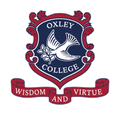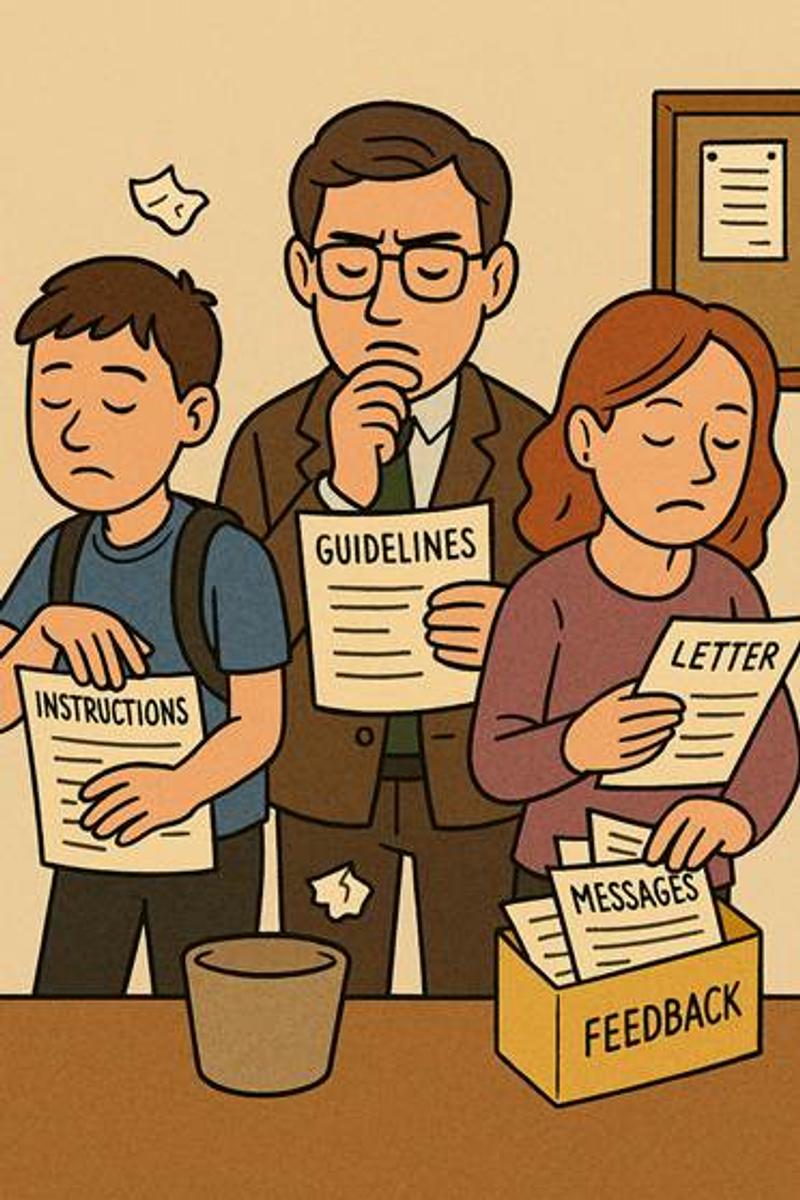Secondary School

The Things We Do Not Read
As our Year 12 students square off the last of their exams and near the end of their VCE journey, our Year 9s begin their first experience with formal exams, while Year 10 and Year 11 students once again navigate through this all-to-familiar academic milestone.
Reflecting on this, teachers inevitably find themselves thinking about the countless hours that students have spent pouring over their textbooks, deciphering pages of scribbled notes, and the time spent with bleary eyes fixed on laptop screens late into the evening. Yet, in the midst of choosing what to revise and where to focus, teachers may also think about how many valuable insights might have been missed by our students?
Overlooking important details and opportunities is not a trait that is only shared among students, there are countless things that we all might overlook day-by-day when pressure builds and countless priorities take hold.
It is a common refrain in all secondary schools, and it can be a common sight to see students skim over instructions, for teachers to “interpret” certain guidelines and procedures when pressed for time, for parents to filter through the barrage of letters, messages and student feedback that are sent to them daily. But beneath these seemingly everyday omissions lies a deeper pattern: a selective blindness to knowledge and wisdom that challenges us at times to respond to opportunities, that help us to engage and to adapt and perhaps change accordingly.
The Bible warns us not to not shrink from opportunities that convict us, and we are enjoined to be proactive—to ensure that we do not walk away unchanged:
But be doers of the word, and not hearers only, deceiving yourselves. For if anyone is a hearer of the word and not a doer, he is like a man who looks intently at his natural face in a mirror... and goes away and at once forgets what he was like.
James 1:22-24
Teachers often speak of “teachable moments”, those rare and valuable instances of keen insight when all students can connect the proverbial dots with unexpected clarity.
Just as often, there are those “teachable moments” that are left on “unread” (like so many direct messages on SEQTA), when a rubric is ignored, a warning is left unheeded, or incisive feedback is dismissed. These are not failures of literacy, but failures of intention.
Consider the student who receives a freshly marked essay with detailed comments from their teacher. They may be tempted to simply glance at the grade and move on without reflecting on what was done or how they could improve. The teacher, having spent the time to craft their feedback is left to wonder whether all the time and effort was worth it.
Never professing to be perfect themselves, teachers also fall prey to this style of selective reading. The standard working day of a average teacher is typically awash with the demands of meeting professional standards, addressing curriculum frameworks, matching pastoral policies etc. And in a rare lapse, some of these daily preoccupations may be shelved when they become too taxing or even inconvenient at the time. We know that they are important, but ask whether they are important today?
In a time when each of us is beset by information overload, we need to find a way to stem the proverbial tide and curate our inputs with caution and care. Always pressed for time, our attention is constantly stretched to its limits by countless intrusions. Our favourite apps and platforms utilise algorithms that cleverly deduce our interests and biases and feed us what we want to see and hear. In time, we enter into a personal echo chamber as we start to read only headlines rather than articles and we begin to “skim”.
When we “mishear” instructions that require effort and sacrifice, we may reinterpret a message to suit personal preferences, and it’s not always a result of general malaise or rebellion. Rather, it is more subtle than that and may serve as a quiet act of self-justification amidst frayed nerves, a time-poor schedule or ever-present general fatigue.
A 2024 eye-tracking study Effects of Digital Reading With On-Screen Distractions researchers found we have increasingly read only the centre of digital texts, having learned to ignore peripheral distractions such as ads. We don’t look for meaning but for summary. We look for the “TLDR” (too long, didn’t read) notation at the end in all things. We even begin to scan scripture rather than study it and find that we exclusively quote verses that comfort us whilst ignoring those that redress and convict.
Again, the Bible’s panoptic message warns against such tendencies, and asks us to take note of what matters when it matters:
For the time will come when people will not put up with sound doctrine. Instead, to suit their own desires, they will gather around them a great number of teachers to say what their itching ears want to hear. 2 Timothy 4:3
As teachers and parents, we teach values through our attention and focus. The things we do not read or choose not to read prescribes a Silent Curriculum in our lives and those who look up to us. What we do not endorse, students will not learn to value, and that which we hold in high regard become the things that they will carry forward.
If we only focus on grades, students learn that achievement matters more than the development of character. If we endorse compliance but ignore integrity, they learn that safety trumps conviction. If we speak of kindness but only speak to competition, they learn to mask empathy for the sake of advantage.
How we engage young people who have been left in our charge also teaches whether we value what is in them. When we say, “respect matters,” but interrupt them mid-thought, they notice. When we preach resilience but crumble under pressure ourselves, they notice. When we quote scripture but cynically twist it to justify our own ends, they inevitably notice. When we genuinely wrestle with hard truths, admit our blind spots, and seek wisdom beyond convenience, they will notice.
They are watching us. They are reading us.
So how do we cultivate a culture that reads deeply, listens humbly, and responds wisely?
We model it. Teachers who admit mistakes, revise their practice, and engage with feedback show students that learning is a lifelong endeavour. Parents who ask questions rather than prescribing answers foster curiosity. Students who are encouraged to accept and reflect on their failures (not just their successes) build resilience.
We teach it. Any English teacher will tell you that reading is not just a simple process of decoding texts; it’s looking for understanding through meaning. We must equip students to read critically, ask questions, and seek personal understanding. This includes reading scripture, not as a collection of comforting quotes, but as a living text that challenges, convicts, and transforms.
We guard against cynicism, an undertaking that is harder to do amidst the thrall of an increasingly cynical world. Integrity demands that we “read” honestly, even when the message is hard.
Hebrews 4:12 provides us with a piercing truth, For the word of God is alive and active. Sharper than any double-edged sword… it judges the thoughts and attitudes of the heart.
We must also remember that unread things often speak the loudest. The unspoken apology, the unwritten encouragement, the unread warning. It is these things that turn to regret when we remember opportunities that have been foregone or lost. In school, as it is in life, what we choose not to read often reveals more than what we do.
For in the things we do not read may lie the very lessons we most need to learn.
Sporting Achievement
We would also like to acknowledge the efforts and leadership of Andrew B (10.4), who Co-Captained the Eastern Ranges Football Club to a historicpremiership at the end of September—their first in 12 years. Congratulations!
Upcoming Events
| Date | Event |
|---|---|
| Monday 17 - 27 November | Head Start Program |
| Friday 21 & Monday 24 November | Student Free Days |
| Friday 28 November | Year 7 Orientation & Years 7-9 Excursion Day |
| Tuesday 2 December | Presentation Evening |
| Wednesday 3 December | Final Assembly: Finish at 12.40pm |
| Friday 5 December | Last Day Term 4: Finish at 1pm |
James Avram
Deputy Principal and Head of Secondary

